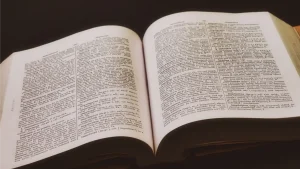LASTEST UPDATE ▪️ COMPETITION INFORMATION
Taipei, Taiwan, has been selected to host the 22nd International Linguistics Olympiad
IOL International Linguistics Olympiad
The International Linguistics Olympiad (IOL) is an annual competition for secondary school students, focusing on linguistics through puzzles and problem-solving challenges. Established in 2003, it promotes creativity and understanding of diverse cultures and languages. The next competition will take place in Taipei, Taiwan, in July 2025. No prior linguistics knowledge is necessary to participate. Last year, 1500+ students from 130+ high school sites and 55 university sites participate in the NACLO.
Interested in the competition?

Competition Overview
Middle and high school students who are less than 20 years old on the first day of the IOL
Eligibility
Free
Exam cost
October 10, 2024 to January 22, 2025
Registration Period (for students in the U.S)
January 23, 2025
NACLO Open Round
March 13, 2025
NACLO Invitational Round
July 2025
IOL International Linguistic Olympiad Competition
Competition Details
1. Competition Process
Every year, each participating country sends 1-2 teams of four contestants each. Each country has its own competition to select contestants. In this section, we will cover the NACLO competition process, which is North America’s National Linguistics Olympiad. The process for selecting contestants and forming teams varies across countries. Typically, contestants are selected from the winners of their national Linguistics Olympiad. To learn more about the selection process in your country, click here.
2. NACLO (North American Computational Linguistics Open Competition)
NACLO is a competition for students in the U.S. and Canada to select winners to compete in the International Linguistic Olympiad, one of the twelve international high school academic olympiads. In the competition, pre-university students solve puzzles in linguistics and computational linguistics.
Eligibility:
To participate in the North American Computational Linguistics Olympiad (NACLO), candidates must: not have been enrolled as a full-time college or university student, be under 20 years old on the first day of the International Olympiad in Linguistics (IOL), and be either a citizen of the U.S. or Canada or a secondary school student in those countries. Participants must also be available to compete at one of the scheduled contest times and can either take part at a registered university site or find a teacher or librarian to host a high school site according to the specified guidelines.
To qualify for the Canadian IOL team, participants must be eligible for and compete in NACLO, be a citizen of Canada or a student at a Canadian secondary school (with proof available upon request), and adhere to all eligibility rules outlined in the IOL eligibility guidelines. For the U.S. IOL team, candidates must also be eligible for and participate in NACLO, be a U.S. citizen or a student in a U.S. secondary school (again, proof may be required), and comply with the same IOL eligibility rules.
Students can register as a team of 2-4 students.
Competition Progress:
- Open Round (January 25, 2024): Interested middle school and high school students will solve 6-9 problems during the Open Round.
- Invitational Round (March 14, 2024): Students who perform well in the Open Round will solve 8-12 harder problems in the Invitational Round, for a spot in the IOL.
- International Linguistics Olympiad: this is an international competition where students from around the globe gather in a country and compete for a chance to earn recognition and valuable prizes.
Problems:
Students may expect the problem types below:
- Translation problems: translating sentences from a foreign language to English, with attention to unique grammatical structures and cultural nuances.
- Number Problems: Focuses on translating arithmetic facts from a foreign language, considering variations in numerical bases or counting systems, where different terms may be used for the same number depending on context.
- Writing Systems: Involves deciphering a specific writing system to reproduce a given text, which may include challenges like right-to-left scripts, lack of vowels, or different symbol systems.
- Calendar Systems: Entails understanding the calendar used by a civilization through context provided in sentences referencing time and dates.
- Formal Problems: Requires constructing a logical model for language transformations, such as converting active voice sentences into passive voice by following specific grammatical rules.
- Phonological Problems: Focuses on analyzing the connection between a language’s sounds and its writing system, including how phonetic elements correspond to written forms.
- Computational Problems: Involves creating algorithms or procedures for linguistic tasks that can be executed by a computer, such as translation or data processing.
- Other Types: Encompasses a range of additional linguistic challenges, including deciphering kinship systems, transcribing spoken language, associating sentences with visual imagery, and translating entirely unknown languages.
Sample problems can be found here.
Prizes:
Participants in the IOL can earn a chance to receive medals (Gold, Silver and Bronze Medals), Honorable Mentions, Team Contest Medals, Tropy for the country with the highest average scores, and Best Solution Prizes.








